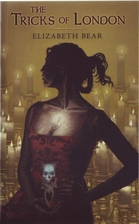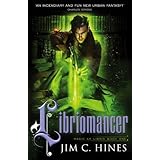From time to time, I get a sudden flurry of comments or emails or Tweets (or all of the above) that let me know someone has stumbled onto an old blog post or comment I made, and has decided to tell their friends how Wrong I am about … well, whatever they think I was talking about.
In this case, it’s a comment I made on Twitter two weeks ago, after coming across a photo taken by Kevin Standlee. The pic was captioned as “The annual gathering of past, current, and future Worldcon chairs held at Chicon 7, 2012.”
It’s a wonderful picture, and it’s amazing to think of the history gathered together in that room. But as soon as I looked at it, I was struck by the following thought:

I hear people talk about how welcoming fandom is, how the SF/F community accepts everyone, and then I look at this snapshot of our history, and I’m struck by how overwhelmingly white it is, and how the men significantly outnumber the women.
As I said in my very next Tweet, I have nothing but respect and gratitude for the men and women who’ve volunteered to do a tremendous amount of work putting these conventions together. Yet I look at that picture, and … damn, you know?
From the sudden influx of outrage, I’m guessing someone stumbled onto my comment about 48 hours ago, and was Very Upset. Most Upset Indeed!
I’ve broken the incoming unhappiness into four categories, with my thoughts on each.
1. “What about your Best Fan Writer Hugo award that you TOTALLY STOLE with your campaigning, making that category even whiter and manlier than it was before, huh???”
I paraphrased slightly, but that’s basically the first email I saw in my inbox when I got up yesterday morning. I believe the appropriate Internet-style response is, U MAD, BRO? 😉
(ETA: Which is not to say that the lack of diversity in the Best Fan Writer category is not a problem. It is, as I’ve talked about before.)
2. “Maybe women and people of color just don’t want to be Worldcon chairs.”
Similarly, another person talked about how PoC have more important things to worry about, and talked about the “logistics,” emphasizing that running a Worldcon required a lot of time and money.
Um … okay. Do I need to spell out the underlying assumptions about time and money here, or the racism that walks hand in hand with them?
This is also a variant of an argument we’ve heard again and again. “We’d publish more SF by women if more women would bother to submit.” “We’d love to have more non-white panelists, but they just don’t come to the convention.” “If people want to make the genre more diverse, then those people need to stop waiting for someone else to do the work; they should jump in and get involved and make it happen.”
While I’m sure this isn’t what people intend, what I hear in these arguments is that we’ve created a community that isn’t particularly welcoming to nonwhite and nonmale fans and readers and authors.[1. See also, “Fake Geek Girls,” whitewashed cover art, sexist cover poses, the disproportionate number of white, male authors who get reviewed, and a whole host of other statistics and examples.] But working to change that community would be uncomfortable, so we’re not going to do it. We’re already here. Why should we care about making you feel welcome?
You say “those people” don’t want to be a part of this community. I ask why someone would put their time and effort and money and sweat into a community that doesn’t want them.
3. “You don’t understand how Worldcons work!”
Not as well as someone who’s actually run one, no. It would be arrogant as hell for me to claim otherwise.
I do know the cons are run by volunteers. That different groups bid to host them, meaning there is no unified, unchanging Worldcon Committee. I know they’re a hell of a lot of hard work. I know the World Science Fiction Society constitution, rules, and meeting minutes are posted here, and go into a lot more detail about the rules of Worldcon and the Hugos.
I’ll happily admit that I haven’t read every page of those rules, and there are certainly people who know more about how Worldcons work. But then, I wasn’t commenting on the process. I was commenting on the results.
4. “Nobody is telling women and PoC that they can’t run Worldcon or attend conventions or be part of fandom, so your charges of sexism and racism are unfair and spurious.”
This is a very narrow understanding of what racism and sexism are about. It comes up a lot, the idea that real racism and sexism has to be explicit and intentional and blatant. Making blacks sit at the back of the bus is racist. Refusing to let women vote is sexist. But nobody’s saying or doing those things, so we’re not sexist or racist! Yay, us!
You’re right, I’m not personally aware of any recent examples of people explicitly refusing to let women and PoC participate in the convention-planning and conrunning process. [2. I’m not saying it doesn’t or hasn’t happened; only that I’m not aware.]
But there are an awful lot of ways to discriminate against people without being obvious about it. There are ways to hurt people without intending to do so, or even realizing you’ve hurt them. You can tell someone they aren’t welcome here without ever saying a harsh word.
If you’re not the one being hurt, it’s easy to miss it. If you’re not the one being made to feel unwelcome, you may not realize it’s happening at all. But if you only recognize two states of existence, Blatant Racism/Sexism vs. Everything’s Just Fine And Dandy, with nothing in between, then you’re not listening to the voices of a lot of people you’re claiming are welcome in our community. And your refusal to listen is perpetuating the problem.
That’s what colorblindness and genderblindness look like in this context. It doesn’t mean everyone is equally welcome in our community, because they’re not. It means looking at a photograph dominated by white men, and refusing to see anything problematic in our history. It means twisting one rhetorical knot after another to try to justify why this isn’t a real problem, or if it is, it’s not our problem.
It is our problem. It’s my problem and yours. And it’s a problem we’re never going to solve if we can’t get past this knee-jerk defensiveness at the mere suggestion that our community might not be perfect.
—
.jpg) The eight-year-old and I just finished A. C. Crispin‘s book Starbridge [Amazon | B&N | Kobo]. I read this series a long time ago and remembered enjoying them a lot. We’ve read some fantasy to Jackson, including my goblin books, but this was the first science fiction novel I read to him. I wasn’t sure he’d like it, but I was hoping…
The eight-year-old and I just finished A. C. Crispin‘s book Starbridge [Amazon | B&N | Kobo]. I read this series a long time ago and remembered enjoying them a lot. We’ve read some fantasy to Jackson, including my goblin books, but this was the first science fiction novel I read to him. I wasn’t sure he’d like it, but I was hoping…





 Tor.com is giving away 10 copies of Libriomancer
Tor.com is giving away 10 copies of Libriomancer  Next up was “
Next up was “ This is the official discussion post for Codex Born
This is the official discussion post for Codex Born 
 I have an autographed copy of
I have an autographed copy of  Today is the release day for the UK edition of Libriomancer!
Today is the release day for the UK edition of Libriomancer!